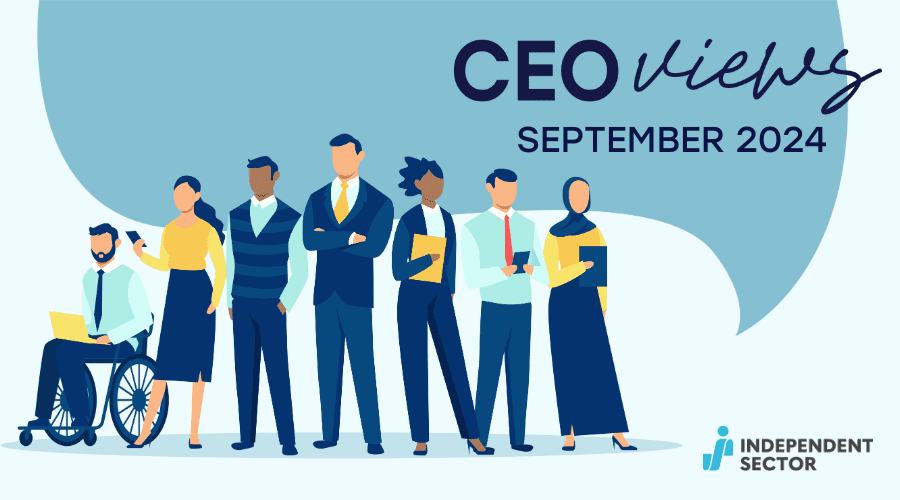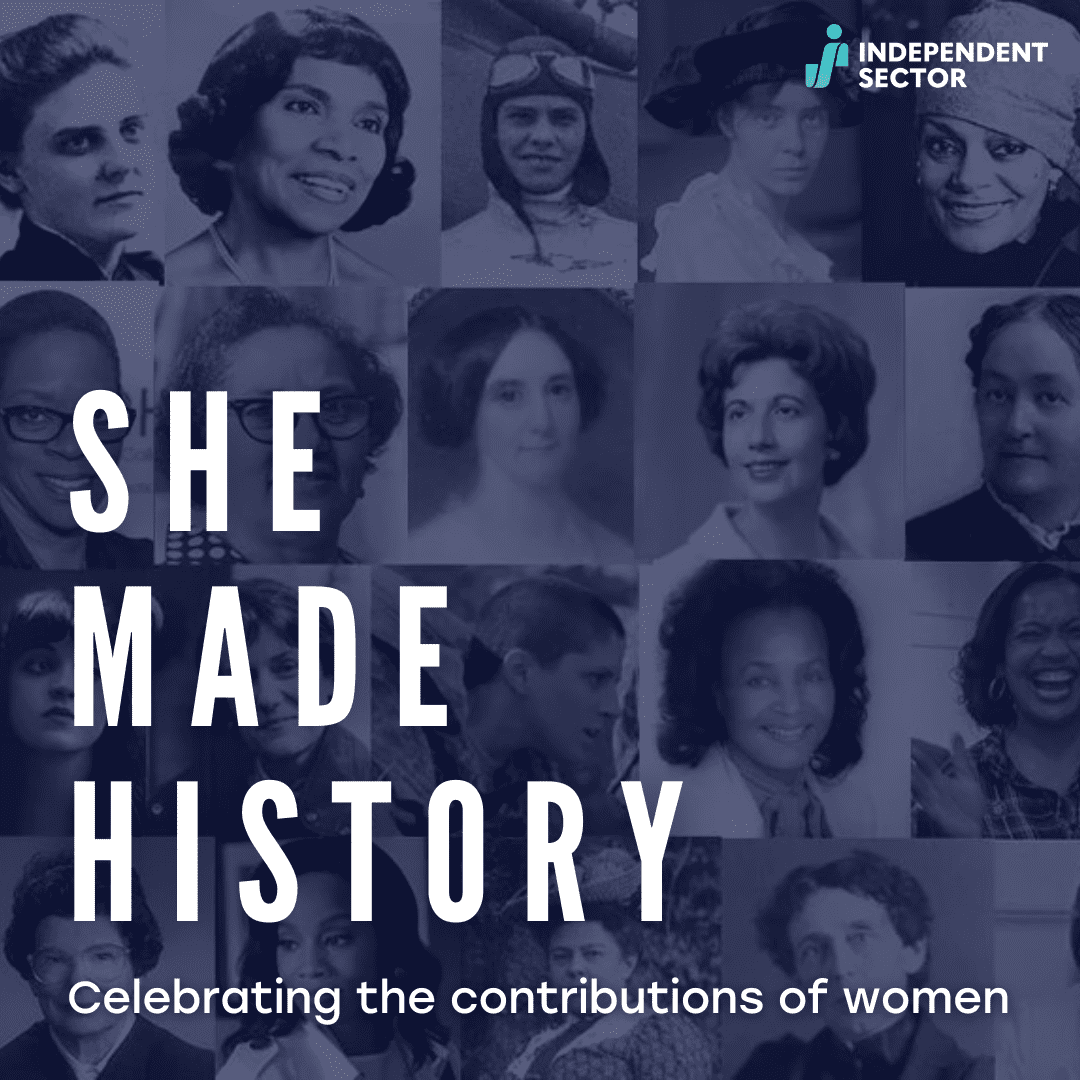As we celebrate Labor Day this month, it’s important to recognize that the charitable sector is powered by people. The relationships we build and the care we extend to one another are at the heart of everything we do. And yet, as powerful as our sector is — contributing nearly 6% to the nation’s GDP — it often feels like we’re struggling to keep pace with enormous challenges and changes.
When I joined Independent Sector 18 months ago, I wanted to hear directly from our members and partners — like you — about the challenges, trends, and opportunities facing our sector. I sat down in various communities across the country, as part of Independent Sector’s Listening Tour, and I asked nonprofit and philanthropic leaders: “What keeps you up at night?”
In those conversations, I heard one theme come up again and again: the nonprofit workforce is in crisis. Employees are exhausted after COVID, and the pressures on nonprofit organizations and leaders are mounting.
Nonprofits are facing rising costs across the board — from health care plans to retirement — while the number of donors continues to shrink, and inflation kicks in. These mounting pressures are making it harder to attract and retain the talented staff we need. The result? More vacancies, fewer resources to fill them, and more organizations struggling to meet the needs of their communities.
But it goes deeper than that. Our sector employs over 13 million people, whose experiences are as diverse as the missions they advance. Yet many are financially strained, earning less than what it costs to survive in the counties where they live. These are the people who keep our sector running, and they deserve better.

Dr. Akilah Watkins
That’s why we’ve partnered with United For ALICE to conduct groundbreaking research on financial hardship in the nonprofit workforce. This month, we released ALICE in the Nonprofit Workforce: A Study of Financial Hardship, the first-ever report of its kind. The findings are staggering: 22% of nonprofit workers can’t afford basic necessities like housing, child care, and health care. That’s more than one in five of our colleagues, friends, and fellow changemakers who are struggling to make ends meet.
These are figures we should all be deeply troubled by. None of us should be okay with the fact that millions of people who dedicate their lives to supporting others can’t afford to pay their own bills.
This study is a starting point and call to action. Now that we have these data, how do we begin to change the economic reality of millions of Americans? We need to find data-informed solutions, whether through policy or practice, to meet the needs of nonprofit workers who are struggling financially.
At Independent Sector, we’re continuing our partnership with United For ALICE to publish more data and tools to better understand the economic realities facing nonprofit workers — and the benefits of achieving financial security. We’re advocating for nonprofit workforce data to be included in Bureau of Labor Statistics quarterly reporting, so we can make informed decisions as a sector. And we’re leading a legislative push to extend the eligibility of certain federal tax credits — already available to for-profit employers — to nonprofits, to incentivize expanded benefits for nonprofit workers like paid family leave, child care, and retirement plans. In fact, 84% of Americans support extending federal business tax credits to nonprofit employers.
We’re also expanding services for senior leadership of nonprofits, using our current CEO Circle of Color program as a model. This leadership circle was formed to address the staggering underrepresentation of leadership of color and actualize systemic change that results in increased executive-level representation.
Our sector must take care of its people. The same care and compassion we bring to the communities we serve must extend to our workforce. People are the heart of civil society, and if we want to build a just and equitable future for communities across the nation, we need to start by investing in our people.
Let’s ensure that the critical work of nonprofits creates both a pathway to prosperity for the communities we serve, and for nonprofit workers themselves.
Dr. Akilah Watkins is president and CEO of Independent Sector.



